This post may contain affiliate links. See my disclosure policy.
Want to try growing your own herbs? Trust me, it’s so easy (if I can do it, you totally can too!). Learn all about growing a herb garden and the many benefits of fresh herbs. They don’t just make your food taste amazing; they’re packed full of goodness too!
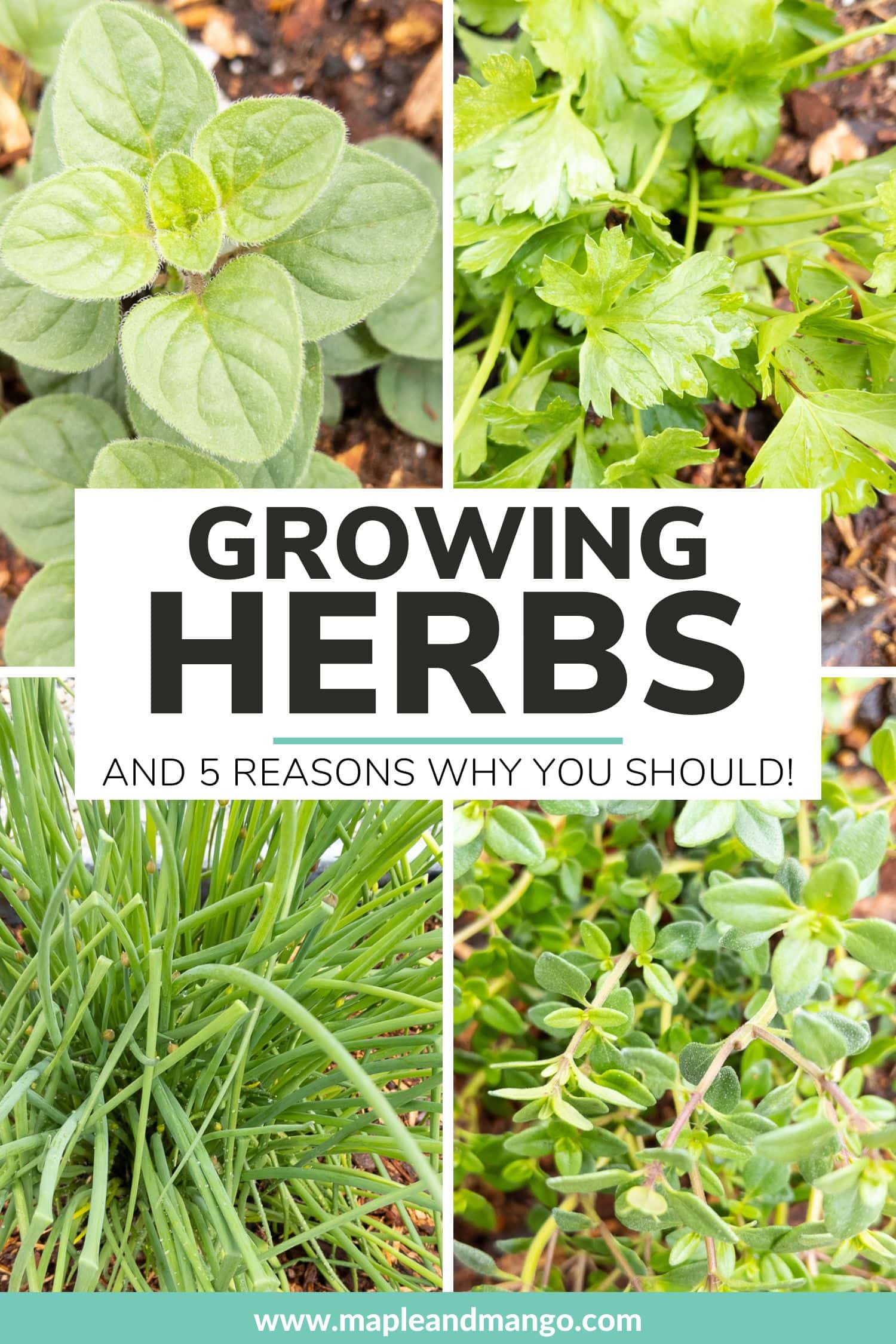
5 Reasons To Grow Your Own Herbs
- Fresh herbs at your finger tips: Instead of one or two types of herbs sitting at the bottom of your crisper drawer (probably wilted or sad looking), you can have a wide variety of super fresh herbs on hand. It doesn’t get fresher than picking them right from the plant!
- Easy to grow: If I can grow them, anybody can grow them! The green thumb gene that the women on the maternal side of my family have definitely skipped me. I’m not great at keeping plants alive and don’t particularly enjoy gardening. However, I have always had luck with herbs! They are super easy to grow with minimal effort and adaptable to any space. I have grown them in pots on a small balcony to the raised garden beds in our current backyard.
- Saves money: Fresh herb bundles can be expensive to buy at the grocery store and have a short shelf life. Sometimes you also only need a bit of a particular herb and the rest goes to waste. Growing them yourself is much more economical!
- Makes food taste and look amazing: Fresh herbs instantly add a pop of flavor and color to any dish.
- Packed with goodness: Not only do fresh herbs amp up the flavor of your dishes but they also add a nutritional boost too. You can find more details on some of the benefits of herbs below.
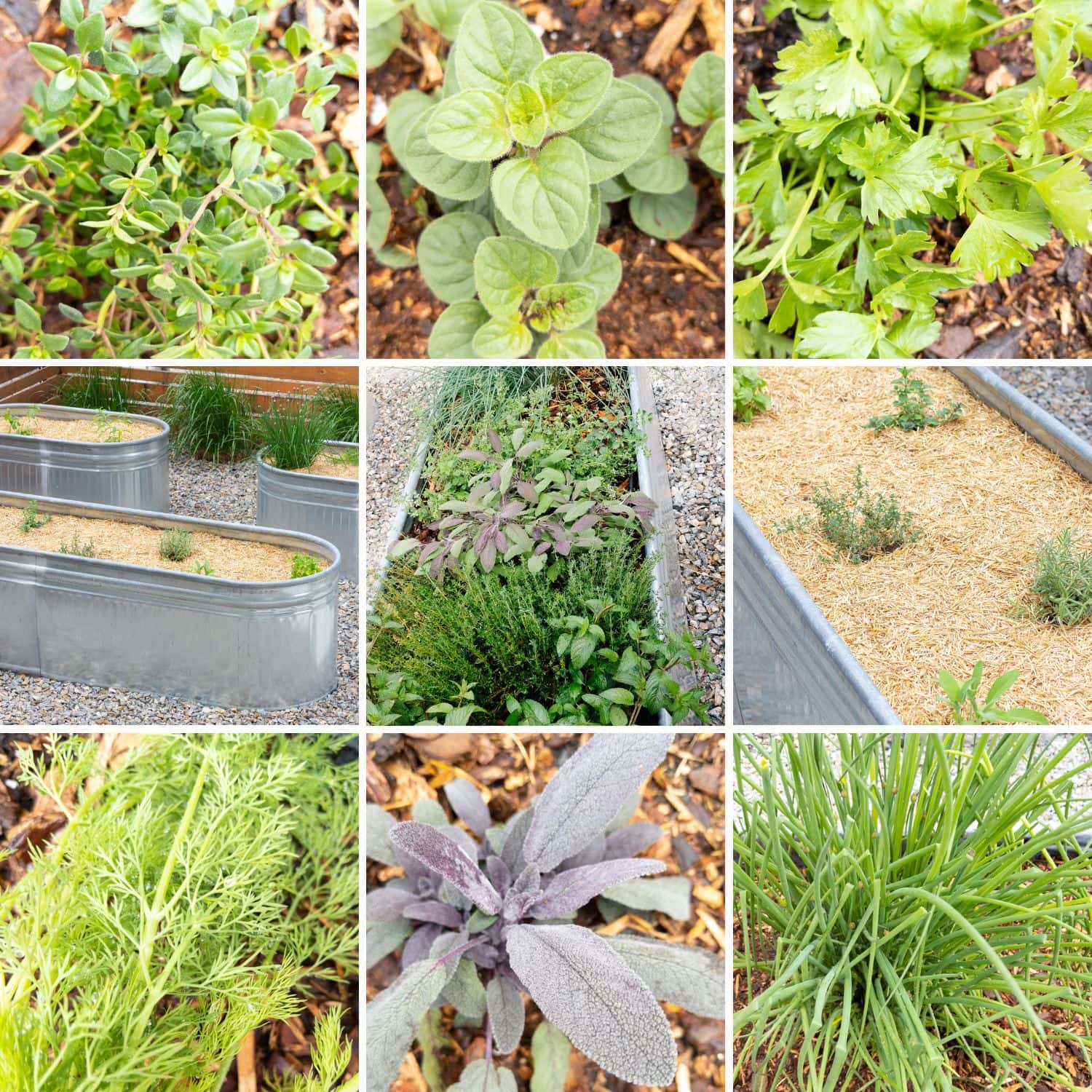
How To Grow Herbs
Herbs are usually pretty easy-going and just need some good quality soil, drainage, water and sunshine. To make it super easy, I just buy the little herb plants at the garden center instead of dealing with seeds.
Fresh herbs can be planted in pots, raised garden beds or directly in the garden. Here are lots of raised garden bed and planter ideas for herbs for inspiration.
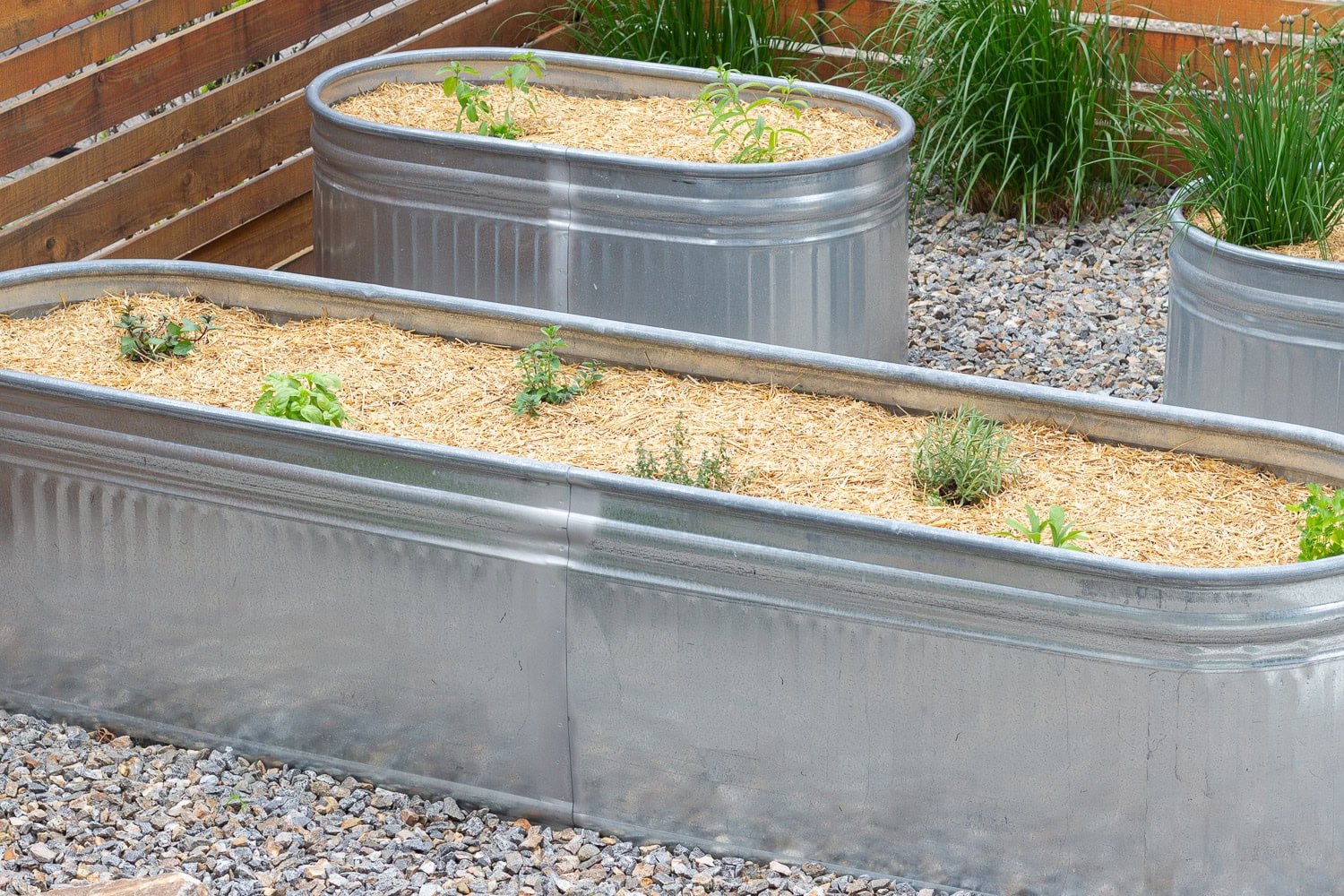
In my current home, I have three heavy duty galvanized steel troughs (the type used for livestock). One is 2x2x8 feet and the other two are 2x2x4 feet. They were picked up at a farm supply store and the landscaper then put a number of holes in the bottom for drainage and ran some drip irrigation through them.
Mulch Recommendation
Mulch For Herb Gardens
I like to add mulch to my herb garden to retain moisture and help control soil temperature (important on those hot days). Since you will be eating your herbs, make sure to pick mulch that is safe for edible gardens (not treated with chemicals or coloring). I’ve been using this GardenStraw that a local landscaper told me about years ago since I was struggling to find something. One bag lasts me quite a few years since I only use it on my 3 raised garden beds once in the spring when I plant and once in the late fall when I prepare the raised beds for winter.
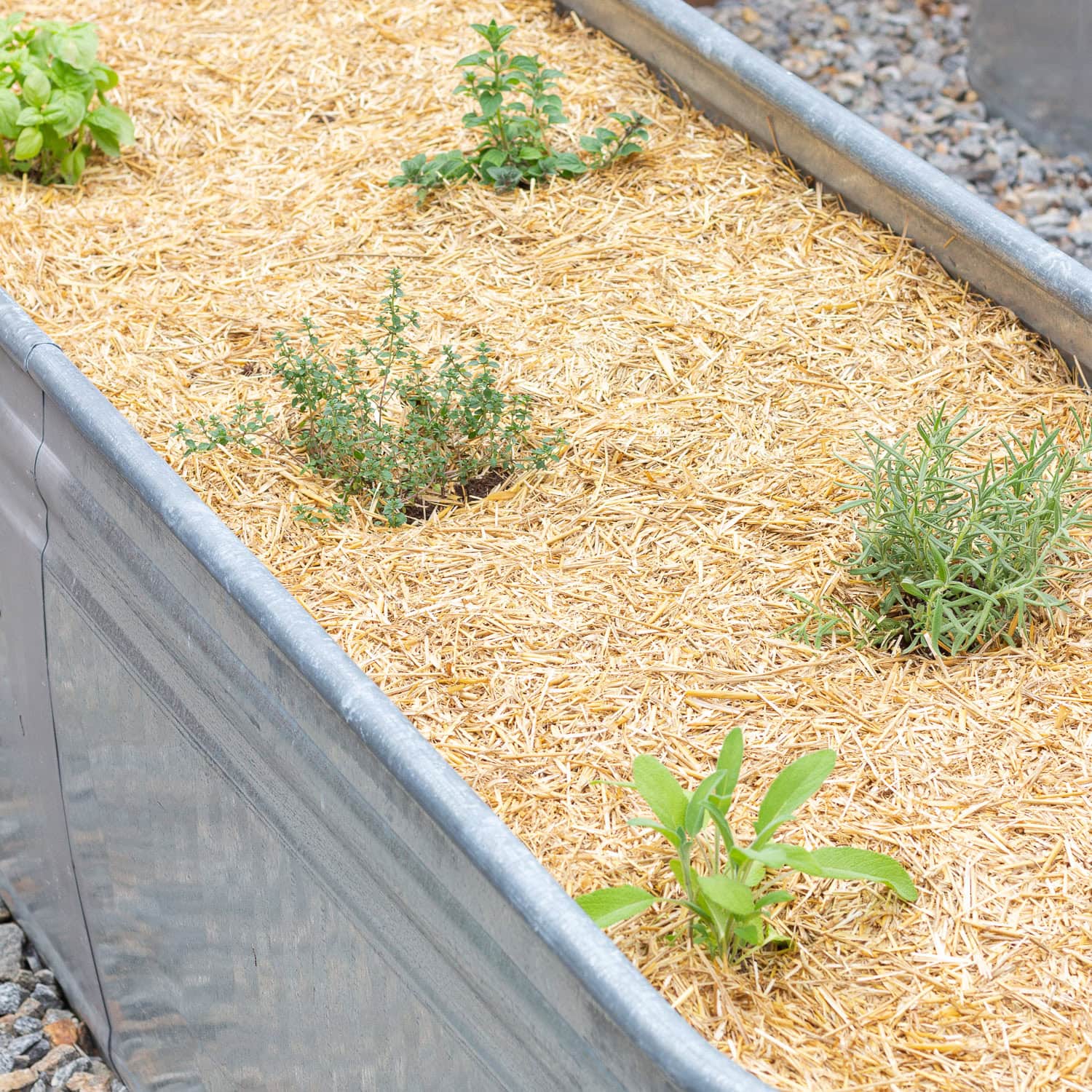
Which Herbs To Grow
Choosing which herbs to grow is a personal choice. There are tons of options available so just choose your herbs based on which ones you like to eat and how much room you have to grow them.
Personally, I grow the following herbs every year: parsley, chives, basil, oregano, thyme, rosemary, sage, mint and dill. I also tend to grab a few additional herbs that look interesting because it’s hard not to!
What Herbs Should Be Planted Together
Here are a few tips on which herbs grow well together:
- Basil: Great companion to parsley and oregano. Basil is also a great companion to tomatoes if you are growing them and it is said that they improve the flavor of one another if grown side by side.
- Rosemary, Sage and Thyme: These three herbs grow well together.
- Oregano: Oregano is pretty easy-going. Works well next to basil.
- Chives: Chives are easy-going and work well with any other herb. I usually place it as a divider between clusters of herbs that prefer to be together. Chives are one of my favorites since they come back strong each year.
- Parsley: Parsley should not be planted next to mint. Other than that, parsley is pretty easy-going.
- Dill: Dill is another easy-going herb that also works well next to lettuces.
- Mint: Mint does not get along with parsley. I plant these two at opposite ends of my large raised planter. Please note that mint is very invasive and can spread like crazy. It is best to either grow separately in a pot or if it is planted in your garden bed, you will need to consistently reach around under the soil and pull out the seekers before they take over.
Prune Herbs Regularly
Trim Your Herbs!
Make sure to consistently trim (prune) your herbs to encourage fresh growth and to avoid flowering and seeding. Prune early and prune often – from the top and not the bottom (bottom big leaves on herbs like basil act as solar panels so cut and use the delicious tender leaves from the top). Snip off any blooms as soon as they appear to extend the amount of time you get edible leaves. This is usually what you want the plant for with the exception of dill which you may be growing for the seed flowers to use in pickling.
Benefits Of Herbs
Herbs are packed full of goodness. Here are a few of the benefits:
- Rosemary: Rosemary is a rich source of antioxidants and anti-inflammatory compounds which help boost the immune system and improve blood circulation. (source)
- Mint: Mint helps soothe nausea and calm digestive issues. It is also high in antioxidants. (source)
- Oregano: Oregano is rich in antioxidants and has antibacterial and antiviral properties. (source)
- Thyme: Thyme helps with respiratory issues. It is also high in antioxidants and has antibacterial and anti-fungal properties. (source)
- Parsley: Parsley is rich in vitamins A, C and K, improves digestion and is a natural diuretic. It is also high in antioxidants and has antibacterial properties. (source)
- Sage: Sage helps balance cholesterol and is rich in antioxidants. (source)
- Chives: Chives improve digestion and are high in antioxidants. (source) (source)
- Basil: Basil is rich in antioxidants and has anti-inflammatory and antibacterial properties. (source)
- Dill: Dill boosts digestion and is high in antioxidants. It also has antibacterial, anti-inflammatory and antimicrobial properties. (source)
You may have noticed some repetitive benefits such as herbs being rich in antioxidants (source). Antioxidants help to protect your body from free radical damage triggered by stress and environmental toxins. So toss some fresh herbs into your cooking to give yourself both a boost of flavor and nutrition!
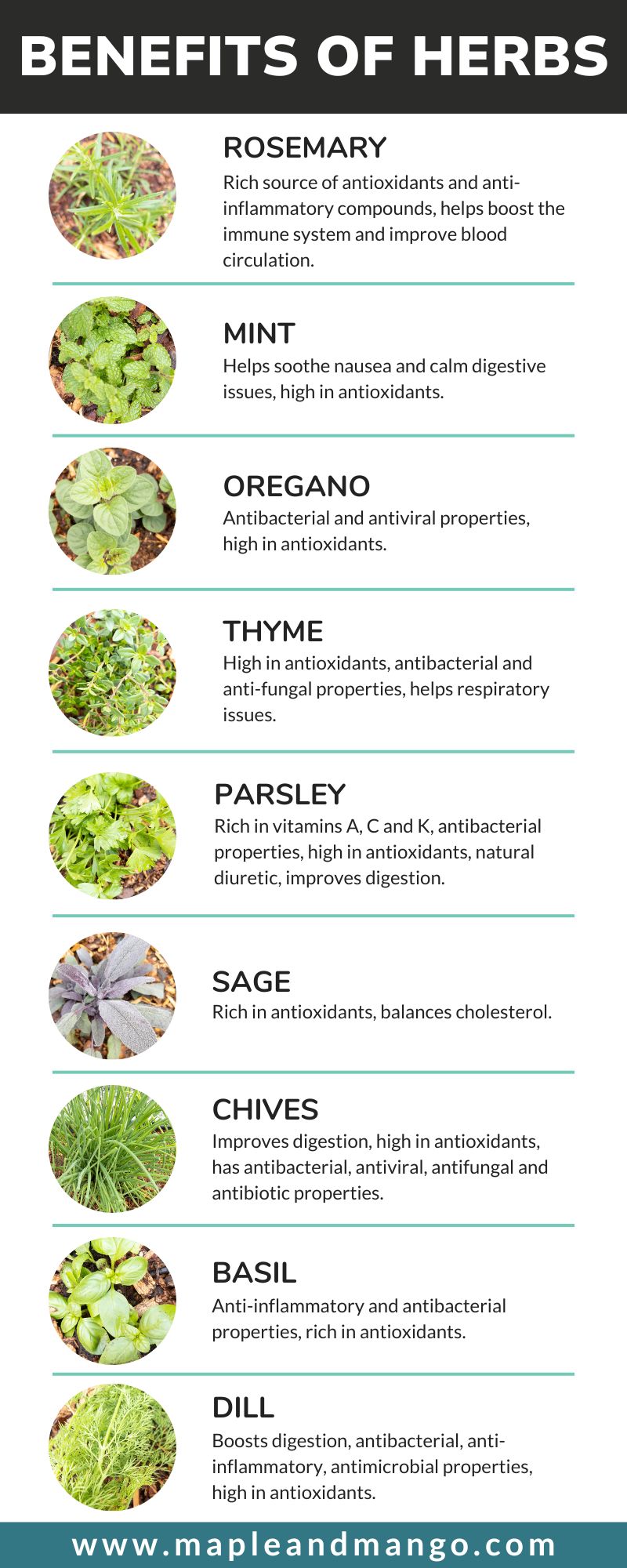
How To Preserve Fresh Herbs
Nothing beats the flavor of fresh herbs so make sure to add them to all your meals during the growing season! However, sometimes your herb garden can explode with more herbs than you can possibly get through. Don’t let them go to waste – preserve them with one of these easy methods!
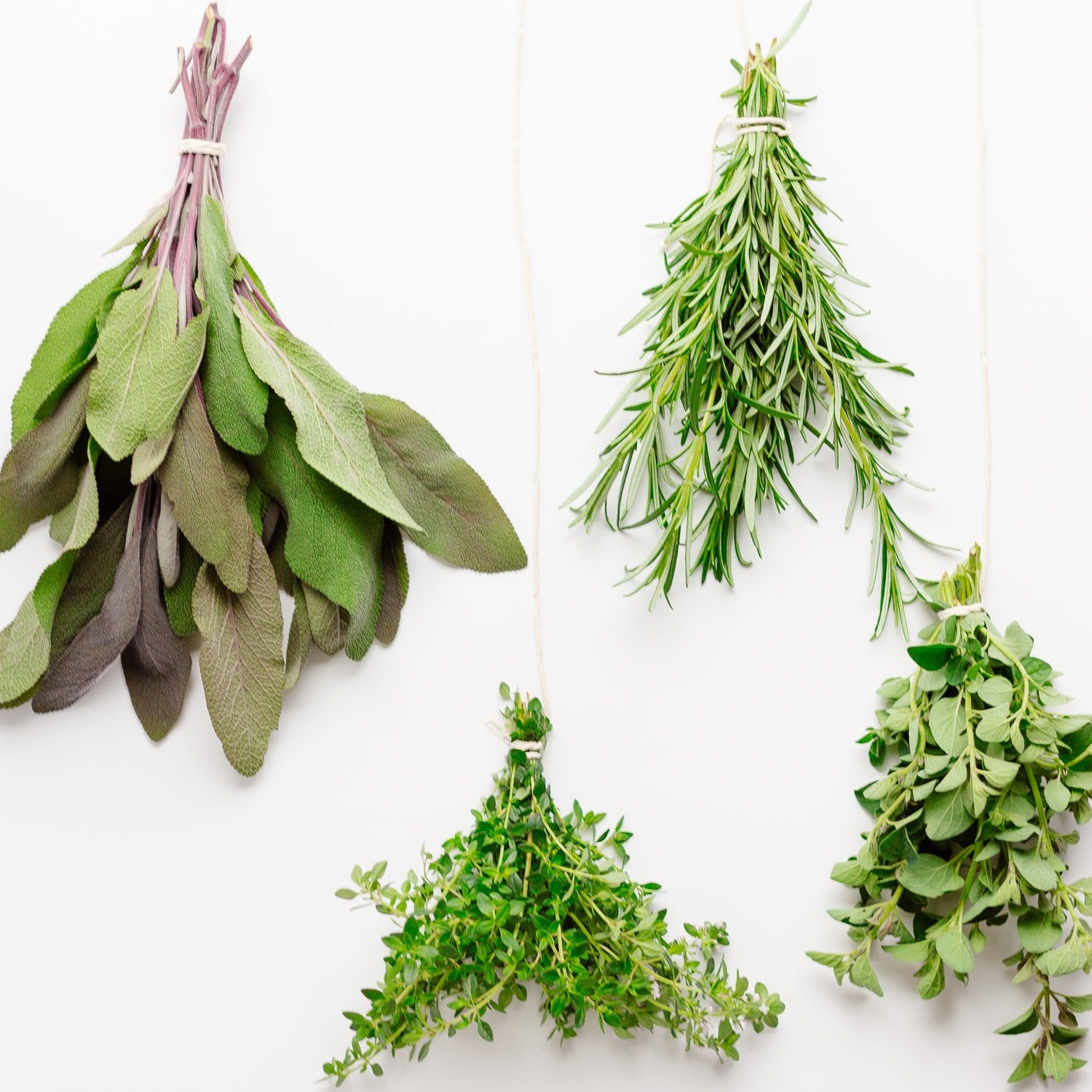
Preserving Fresh Herbs (2 Easy Ways)
My two favorite easy methods to preserve fresh herbs!
Recipes With Herbs
Here are a few delicious recipes to use those fresh herbs in!
Do you grow fresh herbs? Let me know in the comments below what your favorites are!
Pin this now to find it later
Pin It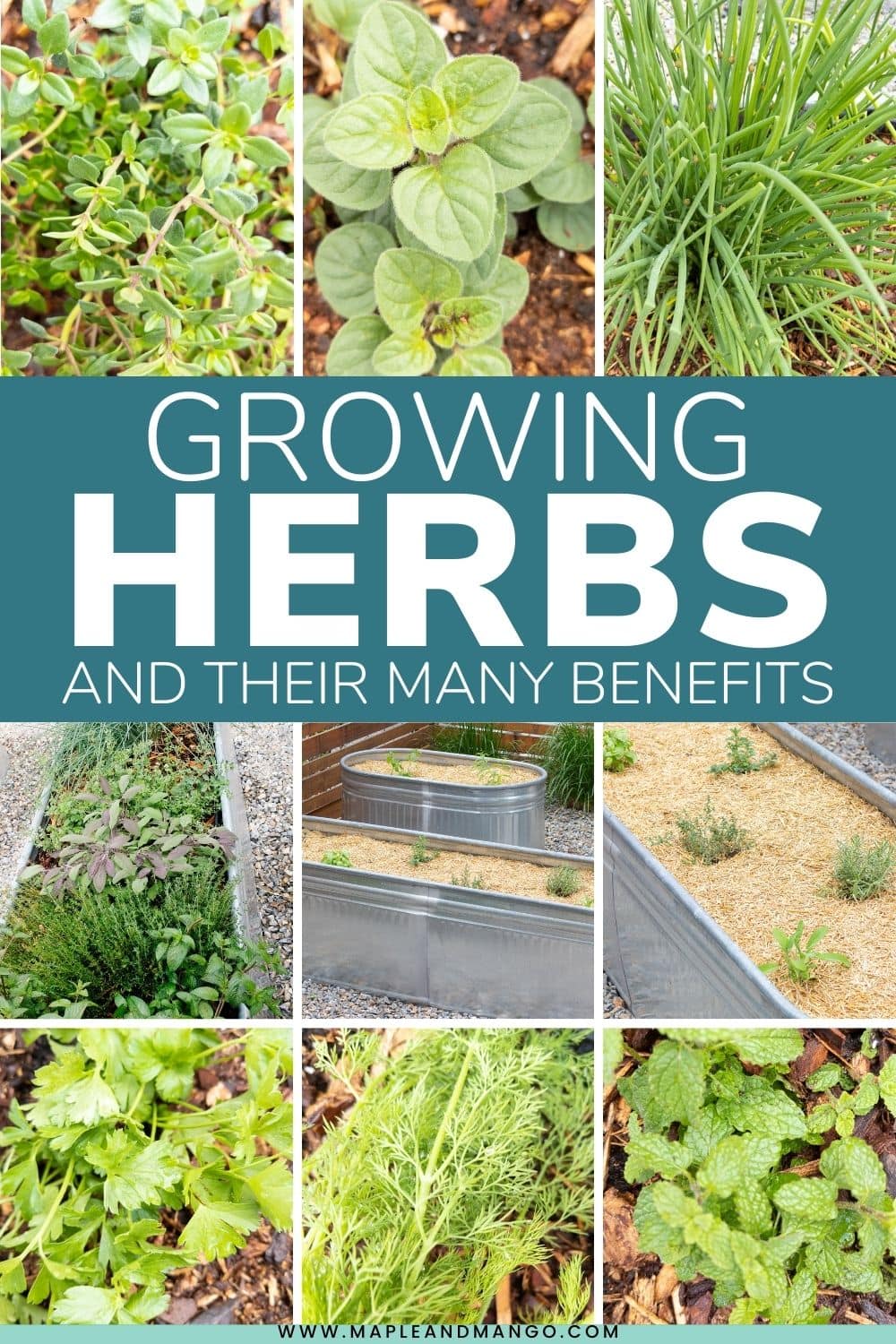
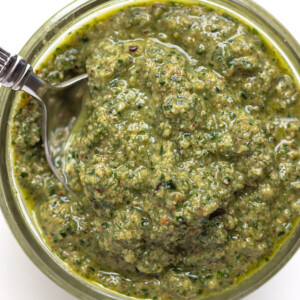
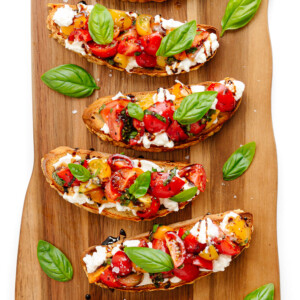

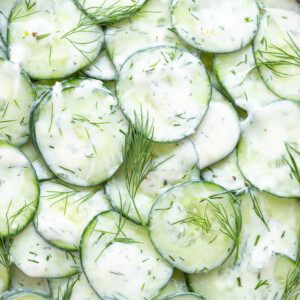
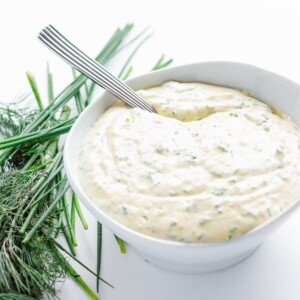
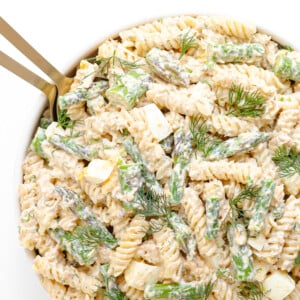
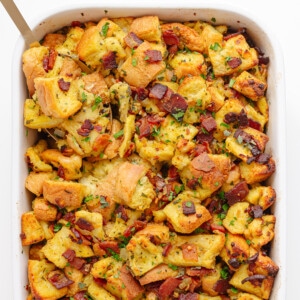
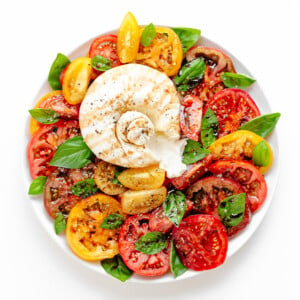
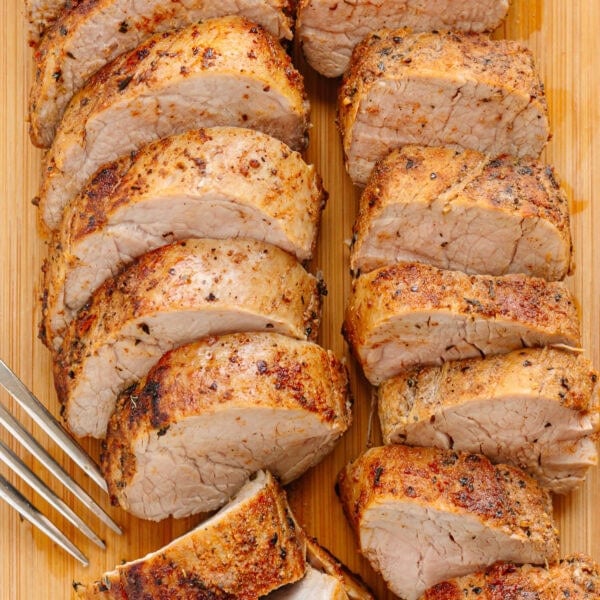
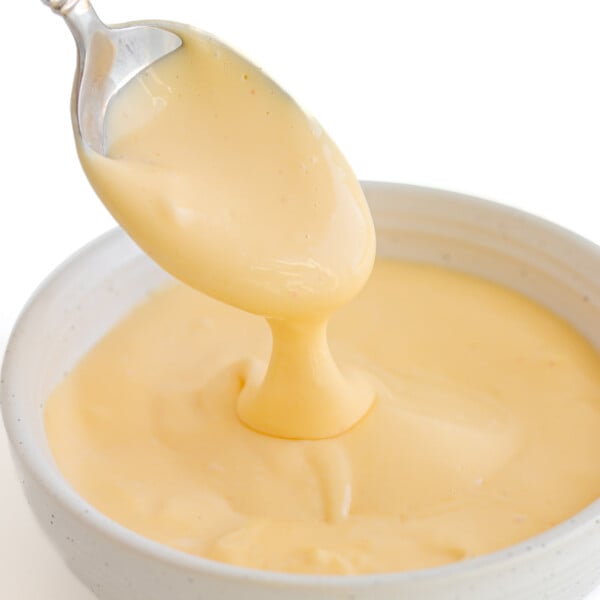
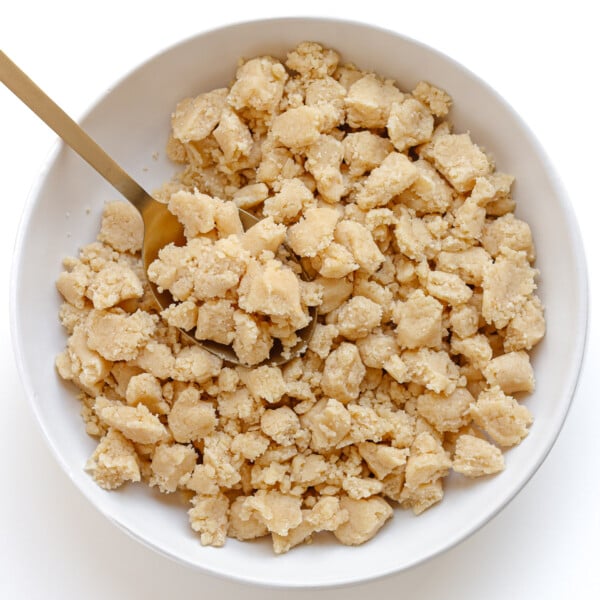
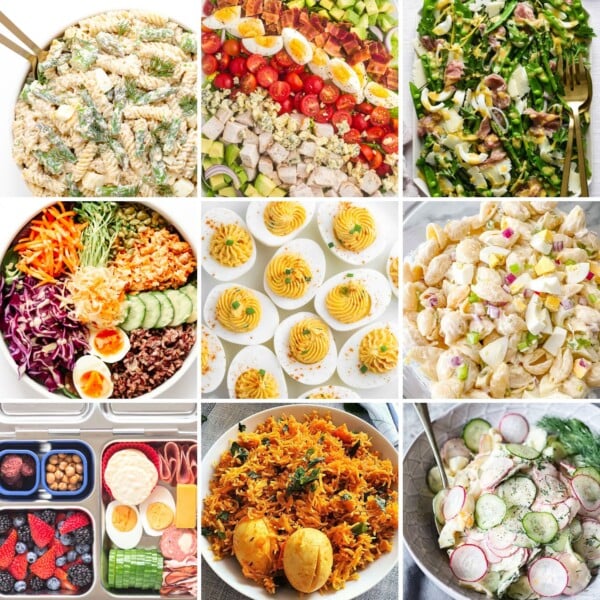






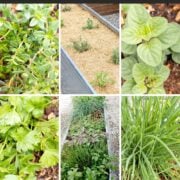
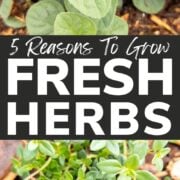
Thank you for this wonderful resource!! We have a raised bed and plant most of these herbs every year. It is so rewarding and delicious! I will have to try planting chives next year. I love your tip about pruning, that will be really helpful this season as my herbs are already so big!
I’m so glad you enjoyed this post! Definitely try adding chives to your herb garden. They come back each year even in a cold climate. They start popping up as soon as the weather starts to shift in the spring – always one of the first signs of spring for me!
I am growing for the first time I have a small garden and I am growing herbs pretty well the same ones that you have above. I am growing tomatoes carrots,beans, peas.radishes,lettuce,cucumbers,and onions I have been reading allot of stuff on Pinterest on how to. Read you stuff on Pinterest. Some I am putting in the ground and other in 2 big red cedar boxes ,plus some in big pots. Thankyou for all the great information. Excuse my English Thanks Judy
Sounds like you will have a beautiful garden full of delicious things!
hi Judy, how’s the garden growing? Would love to hear what it looks like now! Welcome to gardening, by the way…it’s my daily meditation…hope it’ll become yours too!